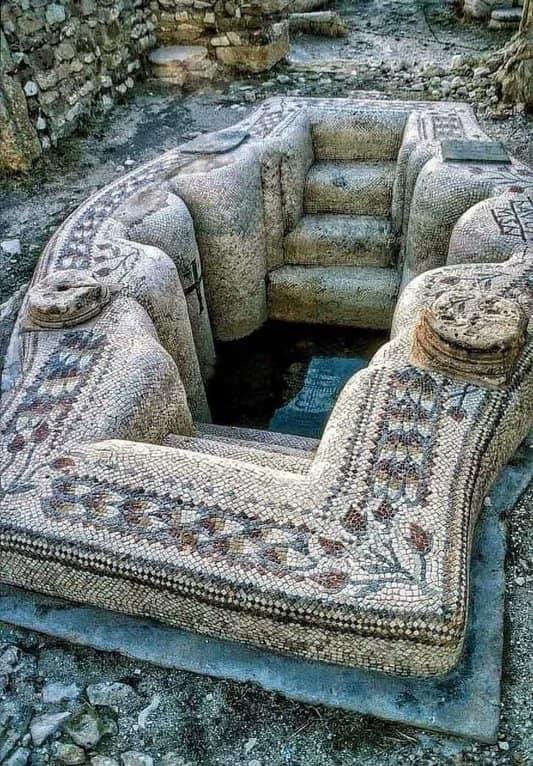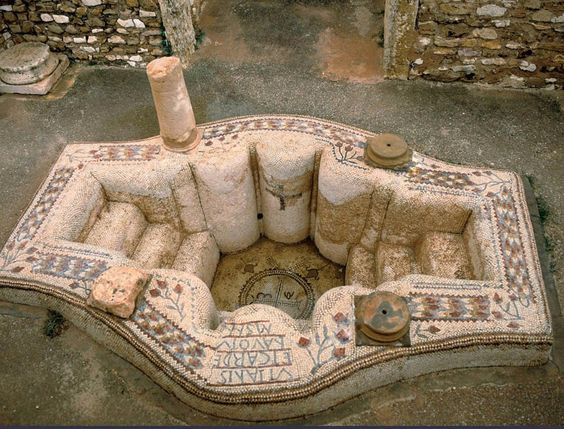A 1,500-Year-Old Byzantine Bathtub in Ancient Sbeitla

The Byzantine bathtub is a remarkable archaeological find located in the ancient city of Sbeitla, previously known as Sofitola, in Tunisia. This exquisite relic dates back 1,500 years, showcasing the ingenuity and craftsmanship of Byzantine artisans. Nestled amidst the ruins of Sbeitla, the bathtub is a testament to the luxury and lifestyle of a bygone era, serving not just as a bathing facility but also as a symbol of the city’s grandeur during its peak.
The Historical Context of the Byzantine Bathtub

The significance of the Byzantine bathtub extends beyond its physical structure; it reflects the socio-economic and cultural dynamics of ancient Sbeitla. Established as a Roman colony, Sbeitla thrived during the Byzantine era, and the presence of such luxurious amenities indicates a prosperous community. The bathtub, constructed from finely carved stone, suggests that bathing was not merely a routine activity but a ritual of relaxation and social engagement among the elite.

Archaeological evidence points to Sbeitla’s prominence as a center for trade and governance. The presence of the Byzantine bathtub aligns with this historical backdrop, as it would have been a communal space for relaxation and socialization among the local populace, reflecting the Byzantine emphasis on public bathing culture.
Architectural Features of the Byzantine Bathtub
The Byzantine bathtub is an architectural marvel, featuring intricate designs that highlight the advanced engineering techniques of its time. Made from local limestone, the bathtub is characterized by its spacious interior, allowing for comfort during use. The smooth, polished surface showcases the artisans’ skill, while the geometric patterns carved into the stone add a touch of elegance.

The Bathtub’s Cultural Significance
The Byzantine bathtub serves as a cultural artifact, providing insight into the bathing customs and social practices of the Byzantine period. Bathing was an essential part of daily life, associated with both cleanliness and social interaction. The presence of such facilities in Sbeitla highlights the city’s role as a cultural hub where citizens enjoyed leisure activities alongside their civic duties.